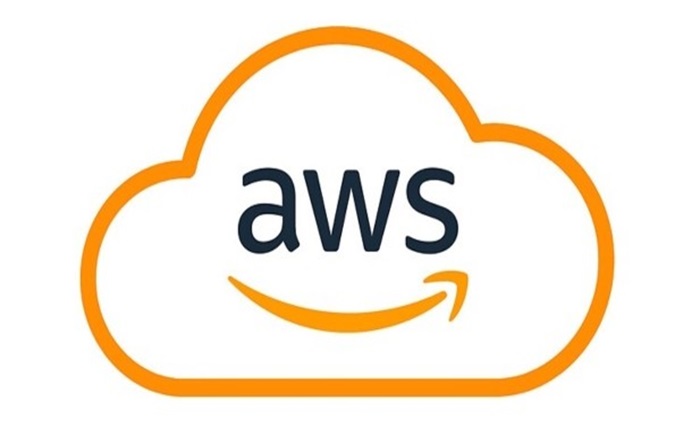Welcome to the world of blockchain technology, where transactions are safe and clear to see, and where there is endless room for creativity. Although blockchain technology has been around for more than ten years, it has just recently begun to have an impact on a variety of US industries.
Blockchain technology is a digital ledger that securely and irrevocably records transactions. A decentralised network of computers verifies the transactions, which once recorded cannot be changed. The way we conduct business, interact, and even govern ourselves has been completely changed by technology. It is understandable why blockchain is regarded as one of the most revolutionary technologies of the twenty-first century.
Finance, healthcare, supply chain, and logistics are just a few of the industries that blockchain has had an impact on in the USA. Due to its decentralised nature and security, it has the ability to address some of these industries’ most pressing problems, including fraud, data security, and inefficiencies. This essay will examine how blockchain is changing several industries in the USA and what the future may hold for it. So buckle up and let’s travel into the fascinating world of blockchain technology.
Finance and Banking
The US traditional banking sector may undergo a change thanks to blockchain technology. Blockchain-based systems can save costs, boost security, and boost the effectiveness of financial transactions by offering a decentralised and open ledger. Banks that use blockchain technology get access to cross-border payments that are quicker and less expensive, easier regulatory compliance, and better fraud prevention techniques.
For instance, to increase the speed and security of financial transactions, JPMorgan Chase created its own blockchain-based platform, called Quorum. As a further illustration, consider Wells Fargo, which has been developing a blockchain-based system to synchronise its internal record-keeping procedures. We may anticipate a big change in the banking sector’s efficiency, transparency, and security as more banks and financial organisations in the USA adopt blockchain technology.
Healthcare
Blockchain technology has the ability to completely transform the US healthcare sector. Managing patient data securely and effectively is one of the largest issues in the healthcare industry. For maintaining health records, blockchain can offer a decentralised, secure, and open system. Additionally, it can guarantee that patient information is readily available to healthcare professionals while protecting confidentiality and privacy.
By offering an unchangeable and visible ledger of transactions, blockchain technology can also aid in streamlining the management of the pharmaceutical and medical device supply chains. This can help to maintain patient safety by lowering the chance that fake pharmaceuticals and medical equipment will enter the market.
In the USA, a number of healthcare organisations have already begun implementing blockchain technology. For instance, Los Angeles-based firm Gem is creating a blockchain-based platform for healthcare payments, and IBM Watson Health is working on a blockchain-based system for safe patient data exchange. Blockchain technology is positioned to play a crucial role in fostering innovation and enhancing patient outcomes as the healthcare sector continues to change.
Supply Chain Administration
In the USA, supply chain management is a complicated procedure that involves numerous participants and transactions. This industry has the potential to undergo a change thanks to blockchain technology, which offers a transparent and secure method of managing the supply chain.
The improved transparency that blockchain offers is one of the key benefits of employing technology for supply chain management. It is simpler to follow the flow of commodities and make sure they are being handled properly when all transactions are recorded on a public ledger. This can lower fraud and raise the supply chain’s general effectiveness.
For supply chain management, a number of US businesses have already started utilising blockchain technology. Walmart, for instance, has put in place a blockchain-based system that monitors the flow of produce from the farm to the shop. This enables them to rapidly spot any potential problems and guarantee that their products are tasty and secure.
Other businesses are looking into using blockchain for supply chain management, including FedEx and Maersk. They anticipate that by implementing this technology, they will be able to cut expenses, boost productivity, and give clients a better experience.
Actual Estate
By increasing transparency, lowering fraud, and speeding up transactions, blockchain technology is quickly changing the real estate market in the United States. The entire process of purchasing, selling, and transferring property may be made more safe and effective by using blockchain. Blockchain-based registries can assist in maintaining an immutable and tamper-proof record of property ownership, while smart contracts can be used to automate transactions and do away with the need for middlemen.
In order to streamline their operations and provide a better customer experience, real estate firms in the USA have begun implementing blockchain technology. For instance, Propy is a real estate platform that uses smart contracts and the blockchain to help buyers and sellers conduct property transactions online. Another illustration is the blockchain-based platform ShelterZoom, which enables purchasers to make offers on dwellings in a safe and transparent manner. The US real estate sector is projected to grow more efficient and reliable for all parties as more businesses in the country use blockchain technology.
Services to the Public and Government
Blockchain technology has the ability to transform American politics and public services. Blockchain can aid in lowering corruption, boosting efficiency, and enhancing public confidence in their government by offering a safe, open, and decentralised platform for data management.
Blockchain technology has a wide range of applications in the public sector, including secure voting, identity management, and digital document management. For instance, West Virginia deployed mobile voting technology based on the blockchain for its 2018 elections, giving voters a more practical and secure means to cast their ballots. The Department of Defence is also looking into using blockchain technology to boost supply chain management and cybersecurity.
Blockchain technology can be applied to the public services industry to manage public data like birth certificates and property deeds in a secure and transparent manner. In reality, a blockchain-based pilot programme for property title transfers has already been launched by the Cook County Recorder of Deeds office in Illinois.
In general, blockchain technology has enormous potential to change how American public administration and services are provided. For agencies and organisations wishing to modernise their operations, it is a desirable alternative due to its advantages in terms of transparency, security, and efficiency.
Future of Blockchain Adoption and Its Challenges
There are still obstacles preventing blockchain technology from being widely used, despite the fact that it is revolutionising numerous businesses in the USA. Uncertainty surrounding regulations is a major issue as governments try to stay up with the quickly changing technologies. Lack of knowledge is a big obstacle to adoption because many people and companies are unsure of the advantages of blockchain technology or how to integrate it into their operations.
The USA’s adoption of blockchain technology appears to have a bright future, nevertheless. We may expect to see more investment and innovation in blockchain-based solutions as the technology is better understood and embraced. Already, a lot of companies are implementing blockchain technology to cut costs, improve security, and promote transparency.
Blockchain technology is anticipated to advance and penetrate new markets in the upcoming years, with potential uses ranging from voting to intellectual property administration. We may anticipate more investment and collaboration as organisations and institutions start to recognise the revolutionary potential of blockchain. This will eventually lead to the wide adoption of this formidable technology.
Conclusion
Financial services, healthcare, supply chain management, real estate, and government services are just a few of the sectors that blockchain technology has proved to have a large potential to revolutionise in the United States. Blockchain-based solutions can change current procedures and open up new options for both organisations and customers by increasing transparency, lowering fraud and corruption, and boosting efficiency.
However, there are also problems like regulatory barriers and a lack of awareness, so it might take some time before widespread acceptance occurs. However, with predicted expansion and development in the upcoming years, the future of blockchain technology in the USA is bright.
Businesses and people must keep up with the most recent developments and trends as blockchain technology continues to evolve and be utilised by a wide range of industries. Blockchain technology has far too many advantages to overlook, and its influence on the future of American companies cannot be overstated. To remain competitive in the market, it is critical for companies to investigate the use cases of blockchain technology and think about how it may be incorporated into their operations.
Read More You May Like:














Post Comment